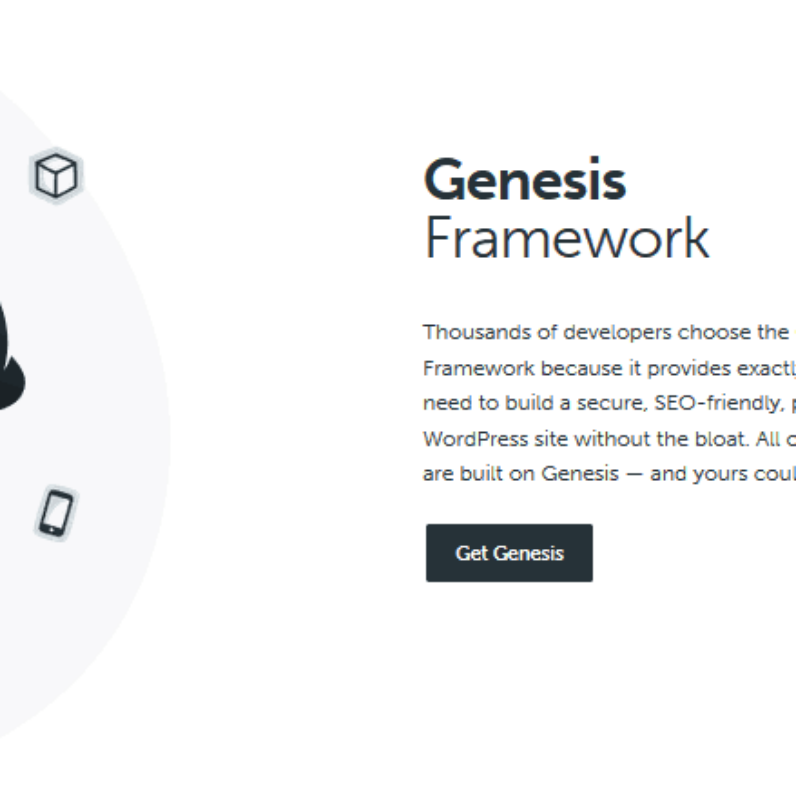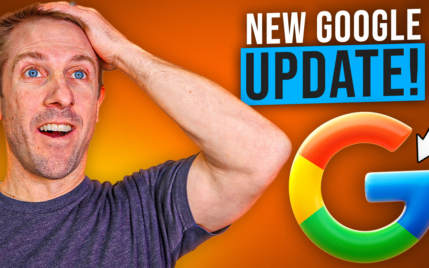Track Local SERPs: Influential Factors & How to Track Results

When you buy something through one of the links on our site, we may earn an affiliate commission.
How can you ensure that more people find your business location? Local search is one of the best ways for your ideal customers to find you, but rank tracking can be challenging. After all, your local rankings change at the drop of a hat. It requires some effort or some key tools to track local SERPs to maximize how people find and interact with your business.
Whether you are looking for a local rank tracker (free or paid) or want to do it yourself, we have you covered. Check your local listings more frequently and learn more about how your search rankings are influenced by other factors in our guide.
Let's get started!
Contents
How to Track Local SERPs on Your Own

The first thing you might be wondering is how you can track local SERPs and rankings on your own. While it can be time-consuming, monitoring progress and rankings could pay huge dividends.
How do you get started with monitoring local search results?
You should already know which keywords you want to rank for, so start by organizing them. You can place them in one column on a Google Sheet so that you consistently check all of them.
From here, create a second column on your spreadsheet for your Google ranking (or whatever search engine you want to monitor).
Perform the search for each potential keyword and then make note of the results in this new column. You can add columns to your spreadsheet each week, month, or quarter to see more patterns over time.
Keep in mind that your geographic location is going to influence your results. Remember to use a proxy server if you don't want your unique location to influence the results of your tracking.
Best Tools to Track Local SERPs
By this point, it should be clear that local rank tracking is more complex than many people think at the outset. It requires valuable time, especially if you have a long list of keywords you want your business to rank for in the SERPs.
Instead, you may benefit from using one of these local rank tracker tools.
SEMRush Local
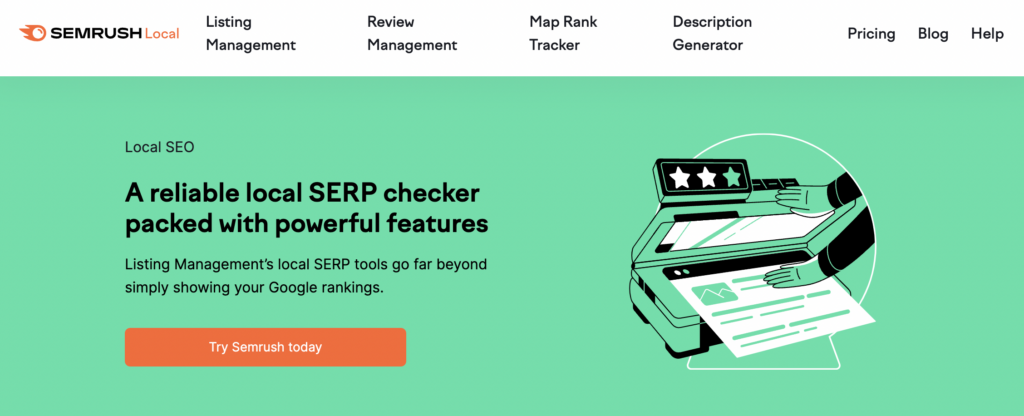
Semrush is one of the best tools on the market for SEO, and its local rank checker is a must-have for a business set on mastering local SEO strategy.
More accurate than tools like Google Search Console, it allows you to track local rankings free for up to five keywords.
One of the more unique features of this tool is its heat map. As we talked about earlier, a searcher's geographic location influences their results and is crucial for local SEO.
This heat map shows you how your customer's location is going to influence their results, giving you clear data for which areas need more attention.
Of course, SEMRush helps with more than just the Google local pack. They also have another service, a listing management option that gets your business into local directories for more indexing.
You can get started with this tool (and limited features) for free.
Local Falcon
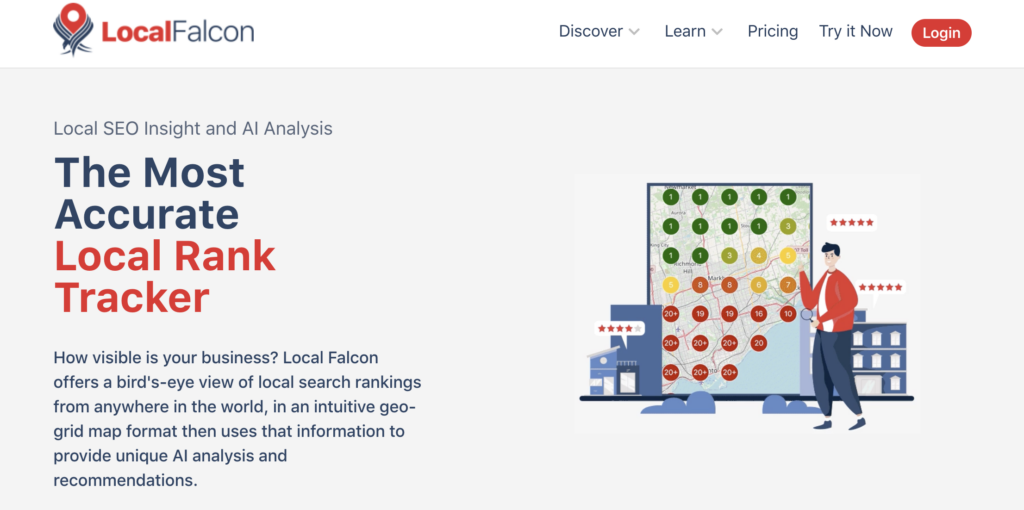
Maybe you have multiple locations, and you want to monitor them all. Local Falcon is here to help with a unique service that can save you time and effort.
Enable their Campaigns feature to monitor multiple locations using the same keyword data and grid size.
This allows you to compare your Google Maps rankings without the headache of setting up a search function for each individual location.
However, that isn't the only thing Local Falcon offers. This local rank tracker tool also allows you to do all of the following:
- Complete Google Business listings
- Separate campaign options for multiple locations (such as rural and urban settings)
- Combine general and geo-specific keywords
- Compare location results.
For an annual membership, it costs just $24.99 per month.
Bright Local
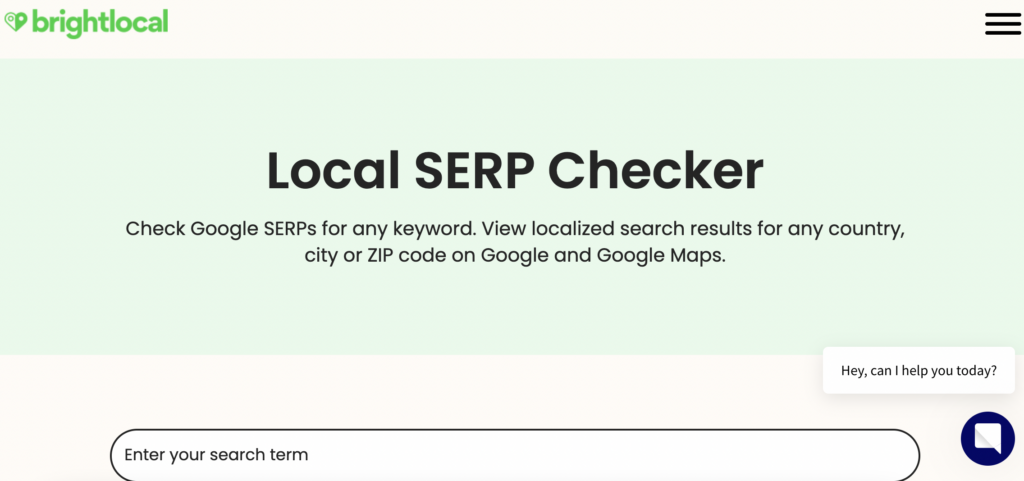
While Local Falcon is affordable, some bootstrapped businesses might not be able to afford the local rank tracker tool.
Bright Local is a free option that promises to make it easy to track your local efforts regarding search engine optimization. All you have to do is enter some very basic information:
- Search term
- Location
- Country and language
- Search engine (Google or Google Maps).
While it may not produce comprehensive reports of how your local SERP is shaping up, it gets the job done. If you're on a strict budget and don't want to go through the hassle of a proxy server for the DIY method to track local rankings, then Bright Local is an ideal alternative.
Plus, you can easily manage your data by inputting results into your spreadsheet. It's a great way to use both the power of a spreadsheet and formulas alongside realistic local SERP rankings.
Growth Bar
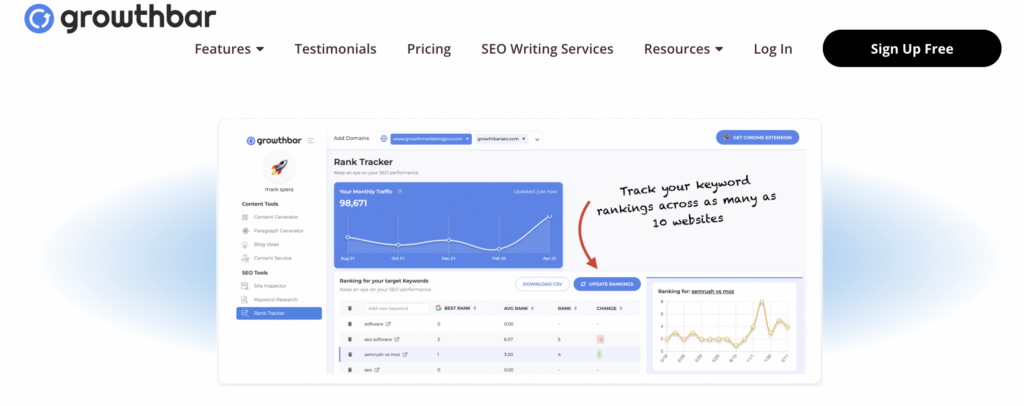
If you want to monitor local search results, it helps to be consistent with examining your data. Growth Bar gives you access to local SEO strategy and makes it more likely that you will have accurate data right at your fingertips.
They check Google thousands of times each day, giving you real-time feedback on your local SEO.
Their local rank checker allows you to track thousands of keywords (depending on your plan). Some people may want to take their data and examine it a bit more closely.
The good news is that it can be exported into a CSV file so you can manage your data in the best way.
Growth Bar is the most expensive option to track local SERPs at $36 per month, but it may be worth it if you want access to their treasure chest of data.
Factors that Affect Local Rankings in the SERPs
Understanding all of the factors that impact local search can be complex, but there is a lot you can do to boost your business location to the top of the search engine results.
Here are a few factors you can work on optimizing with the DIY method or tools listed above.
Claiming a Google Business Profile
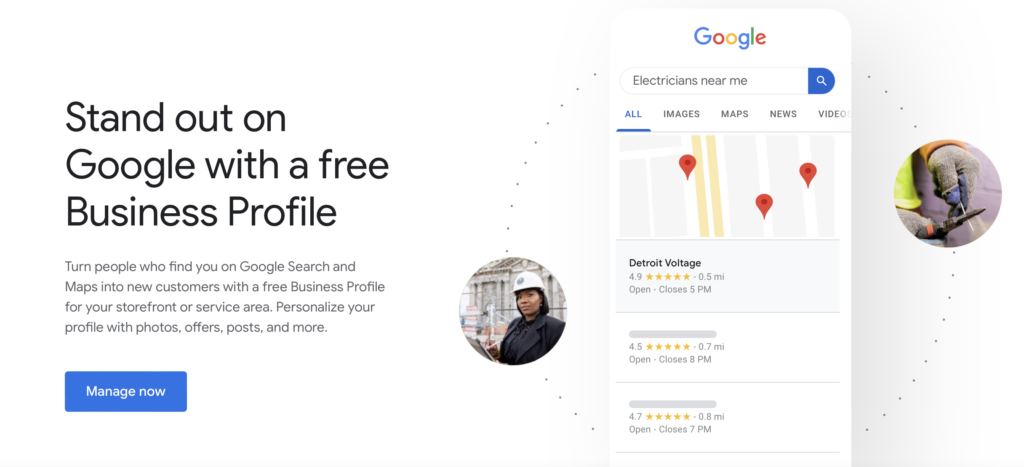
One of the easiest things you can do for your local SEO is to let Google know that you exist. Claiming a Google business profile is essential when you are primarily concerned with local rank tracking.
Google uses the data contained here to impact Google Maps rankings.
This is the first step if you want to show up on Google Maps for people searching in their local area.
Of course, you also need to optimize your profile by letting people know exactly what products or services you offer, as well as your locations, business hours, and other details.
Directories Listings
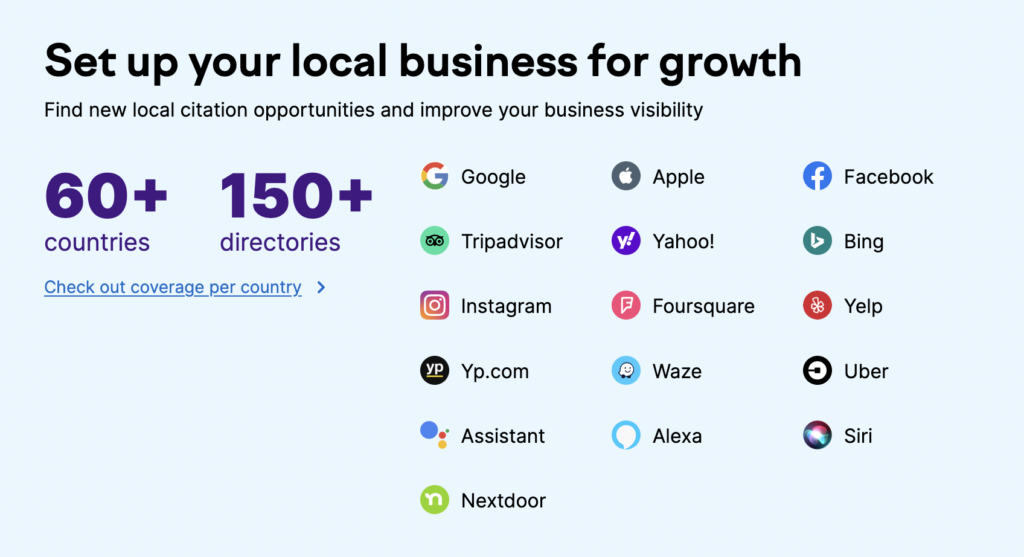
Google Maps isn't the only thing to consider when coming up with a local SEO strategy. There are tons of online directories that can impact your local rankings.
Each one gives you a little more juice, pointing back to your page. With enough information pointing back to you, customers will be able to find you if they're engaging in a local search.
This is where the SEMRush Local tool comes in handy. It can help you pinpoint some of these other directories and boost your local rankings.
Active Social Media Profiles

Your website isn't the only thing that a local rank tracker is going to take into consideration. Google likes to see that businesses are active on the internet in more than one way.
To this end, having an active and engaged social media profile is also an important piece of the local SERP puzzle.
Google doesn't actually index any of the posts you make on Facebook, Instagram, Twitter, and the rest. But it does read the signals that come from your social media, namely clicks back to your website.
A social media platform can act as backlinks, which can help boost domain authority despite being nofollow links (and then helps your local SEO efforts).
Be sure to see our guide to the top social media platforms to learn more about how they can influence your local search.
Multiple Locations
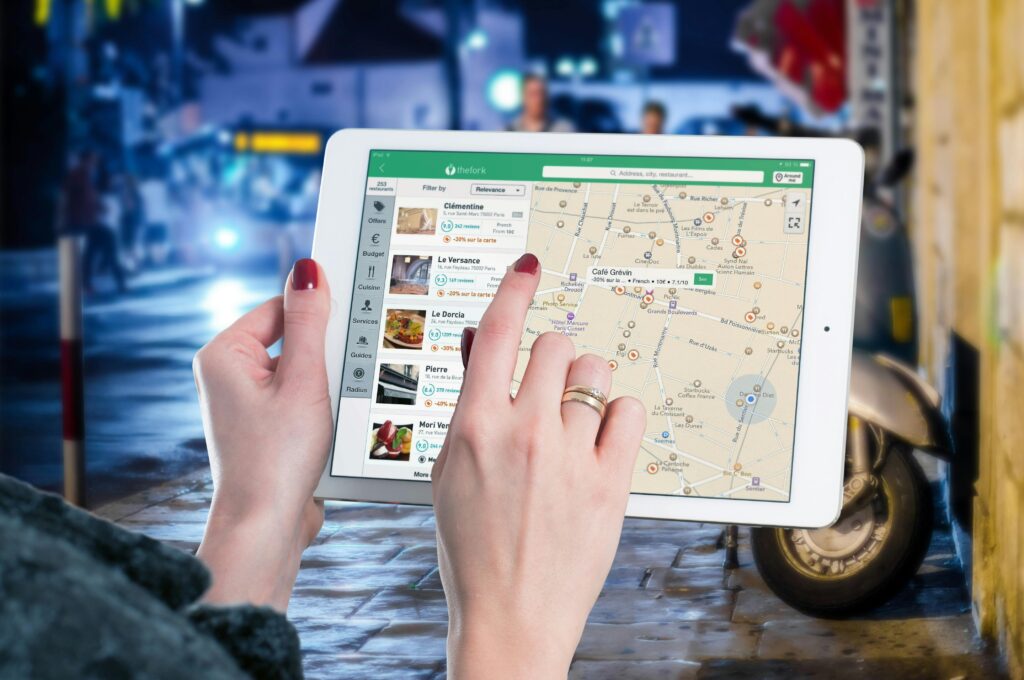
A business that has multiple locations is going to want to show up on the Google local pack in more than one area. If this describes you, then you need to ensure that your local SERP checker will help monitor Google's search results for all locations.
Keep in mind that a searcher's local positions and keywords will impact their results.
This is where Local Falcon shines, so consider whether you can afford the minimal investment in a tool that may help save time.
Map Pack Results
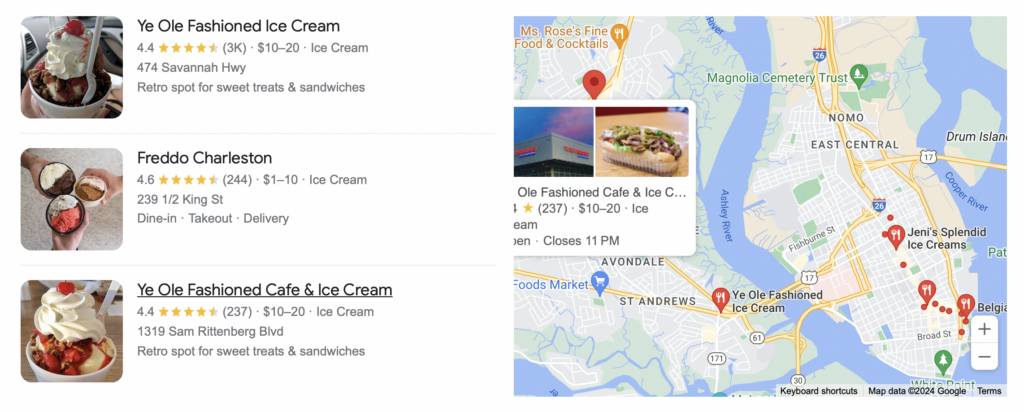
You want to show up alongside your local competitors whenever someone searches for a business like yours in their local area. The Google Maps pack shows the first three results that are pertinent to the searcher's intent.
Oftentimes, these show up ahead of other SERP results, making them the most powerful results. As a consequence, people want to show up on these local packs and should prioritize them when it comes to getting organic results from their local SEO efforts.
Keep in mind that these map pack results factor in your Google Business profile, reviews, and other key data beyond just your relevant local keywords.
Be sure to see our complete guide to improving your Google Maps rankings or getting more Google reviews here.
Final Thoughts: Track Local SERPs Right Now
Keeping tabs on your local search results is critical to making a splash in your geographic area. People who search for businesses like yours need to know that you exist and that you can help.
Whether you decide to use a local rank tracker tool or monitor your stats on your own, this is an essential piece of the marketing puzzle you won't want to miss!
For more information on local SEO, see our guide to using ChatGPT for local SEO here!
Want to learn step-by-step how I built my Niche Site Empire up to a full-time income?
Yes! I Love to Learn
Learn How I Built My Niche Site Empire to a Full-time Income
- How to Pick the Right Keywords at the START, and avoid the losers
- How to Scale and Outsource 90% of the Work, Allowing Your Empire to GROW Without You
- How to Build a Site That Gets REAL TRAFFIC FROM GOOGLE (every. single. day.)
- Subscribe to the Niche Pursuits Newsletter delivered with value 3X per week
My top recommendations


